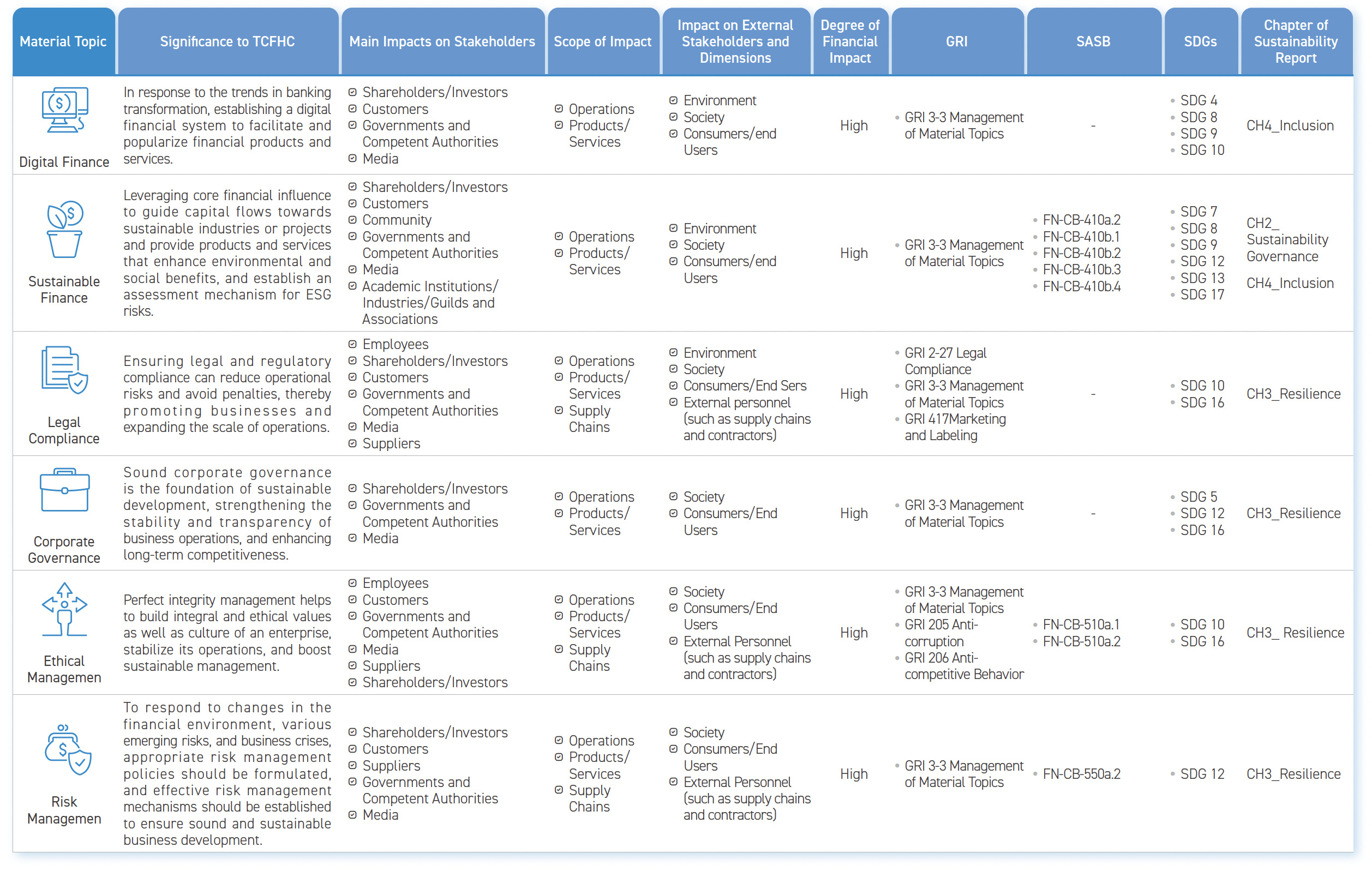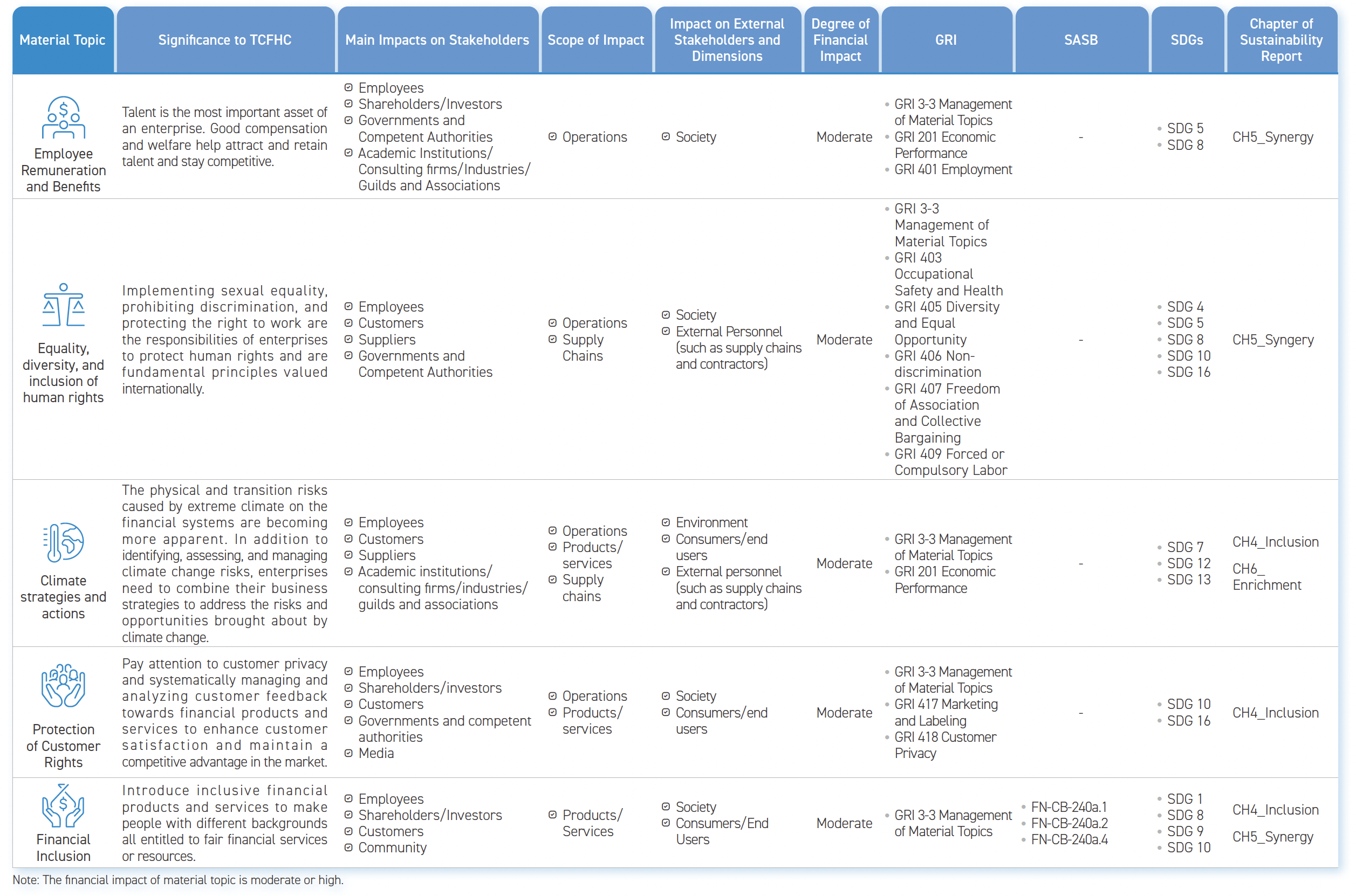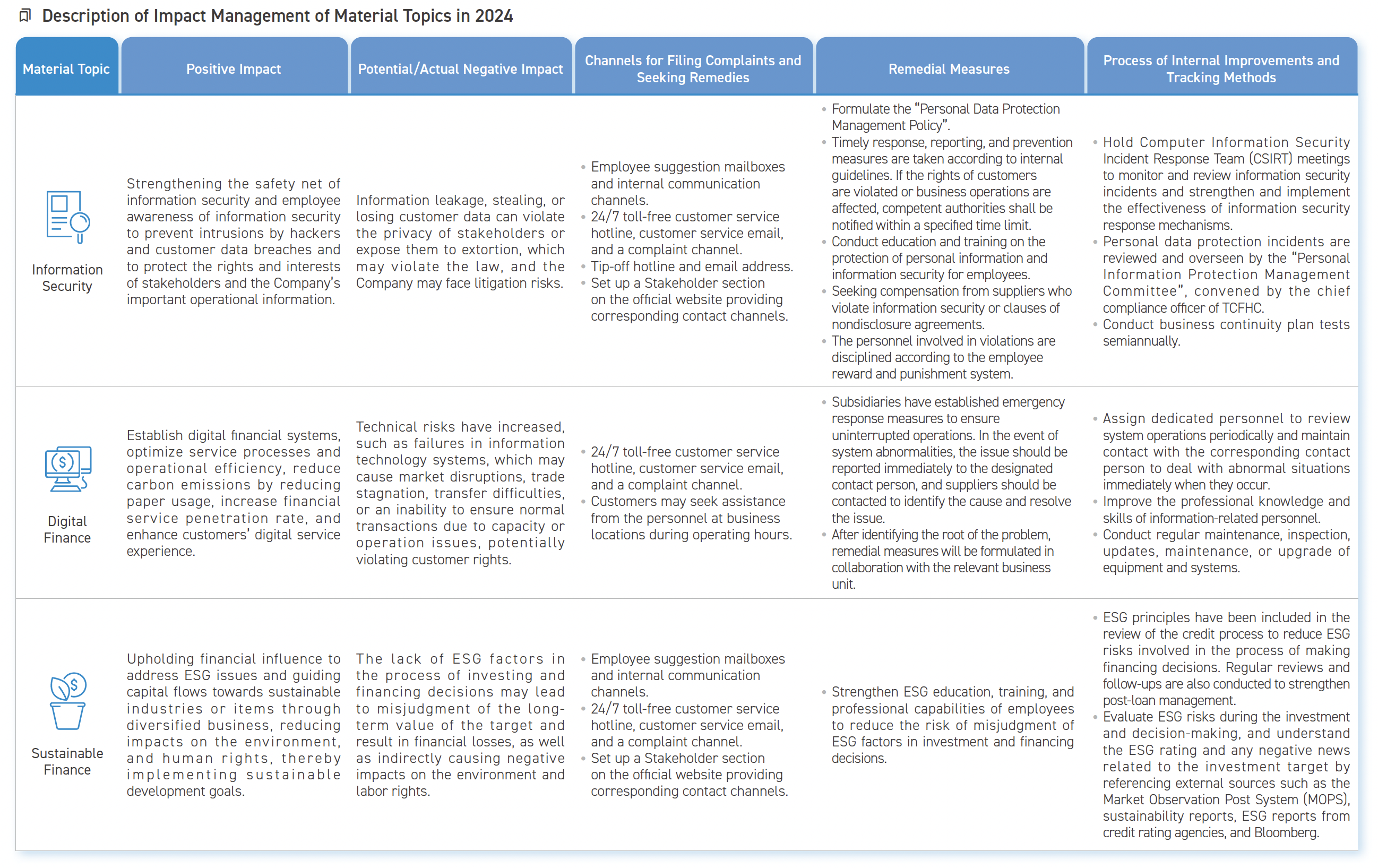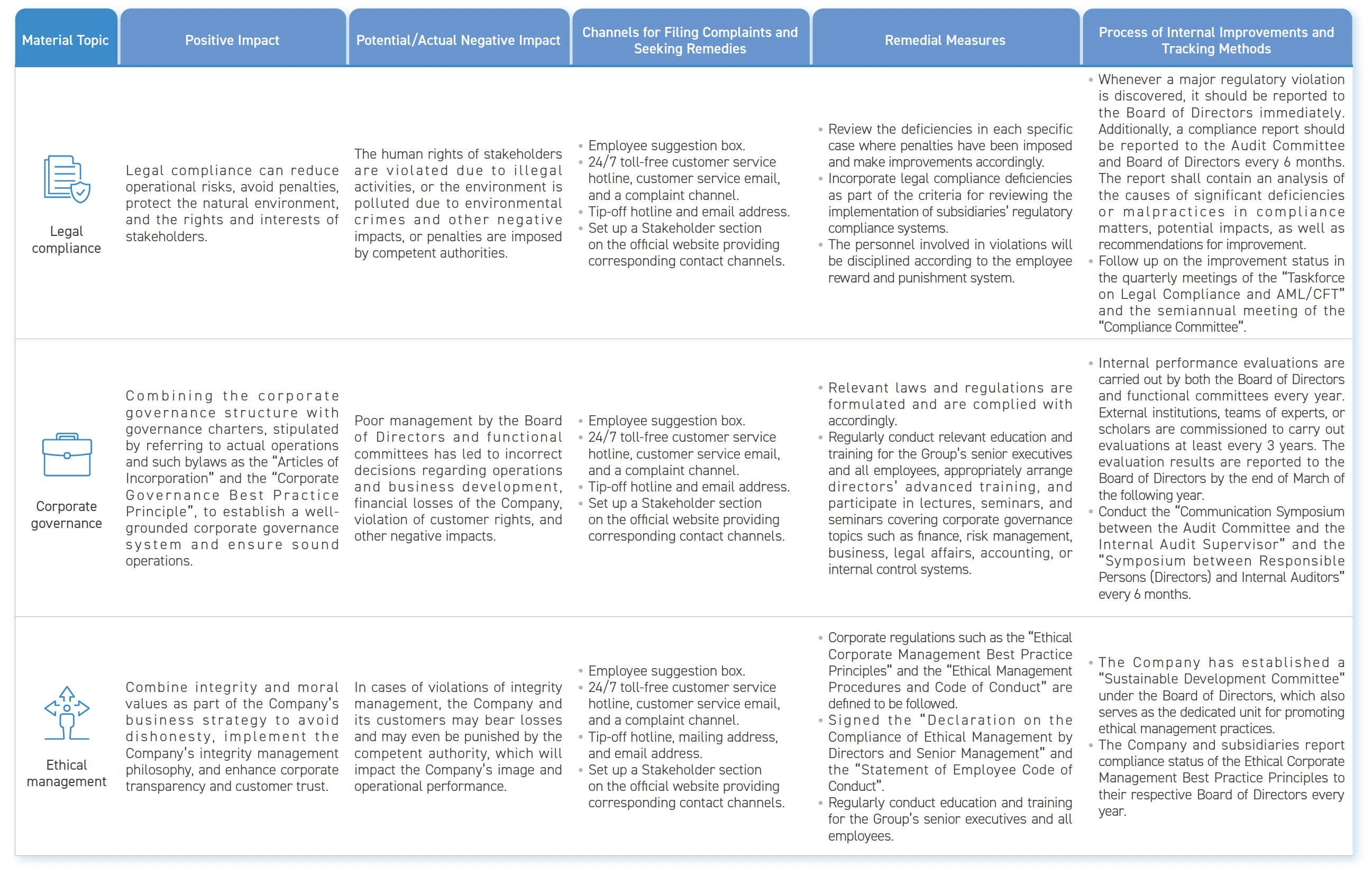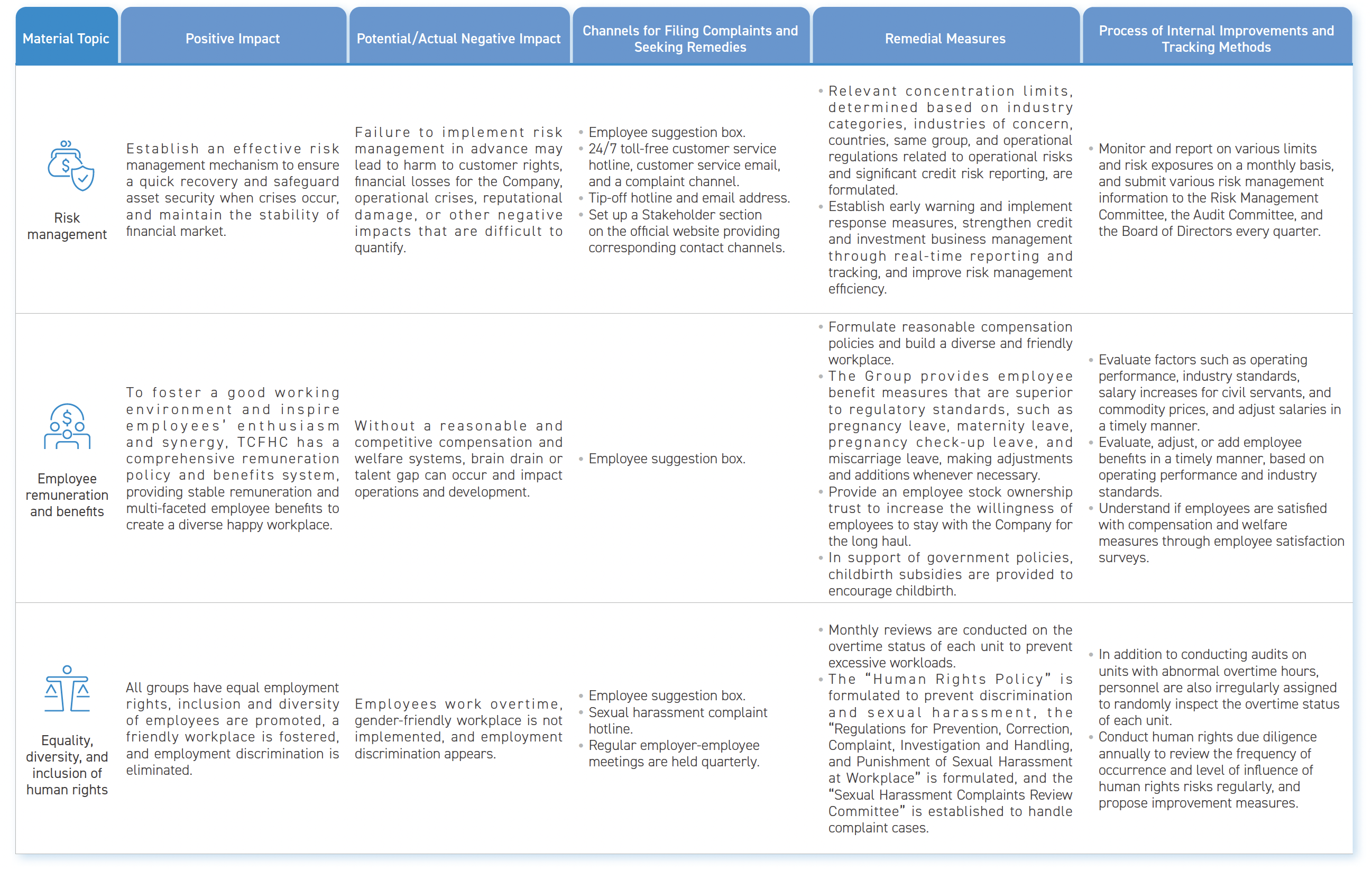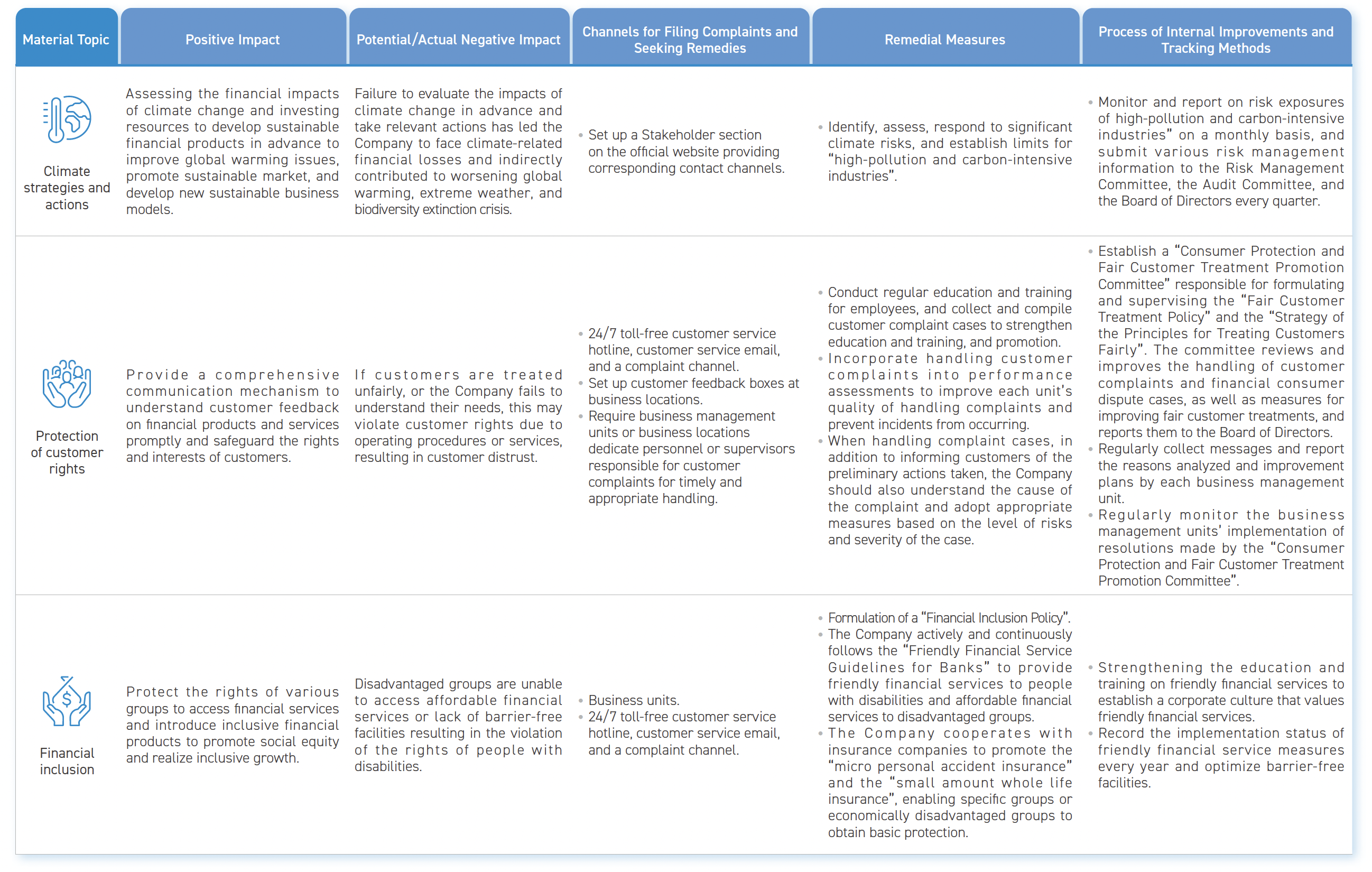The primary step for TCFHC to pursue sustainable development is to identify internal and external stakeholders, understand their issues of concerns, and facilitate a harmonious development with respect to the environment, finance, and society. The Company has set up a “Stakeholder” section on the “Sustainable Development” webpage. Through transparent and smooth communication channels, the Company collects stakeholders’ concerns about sustainable topics, discloses relevant information in this report, and responds promptly by taking appropriate response measures. In 2024, a total of 110 events were held, with 19,842 participants (71 events by the primary subsidiary TCB, with 11,963 participants), to help stakeholders understand the SDGs and Taiwan’s sustainable development policies.
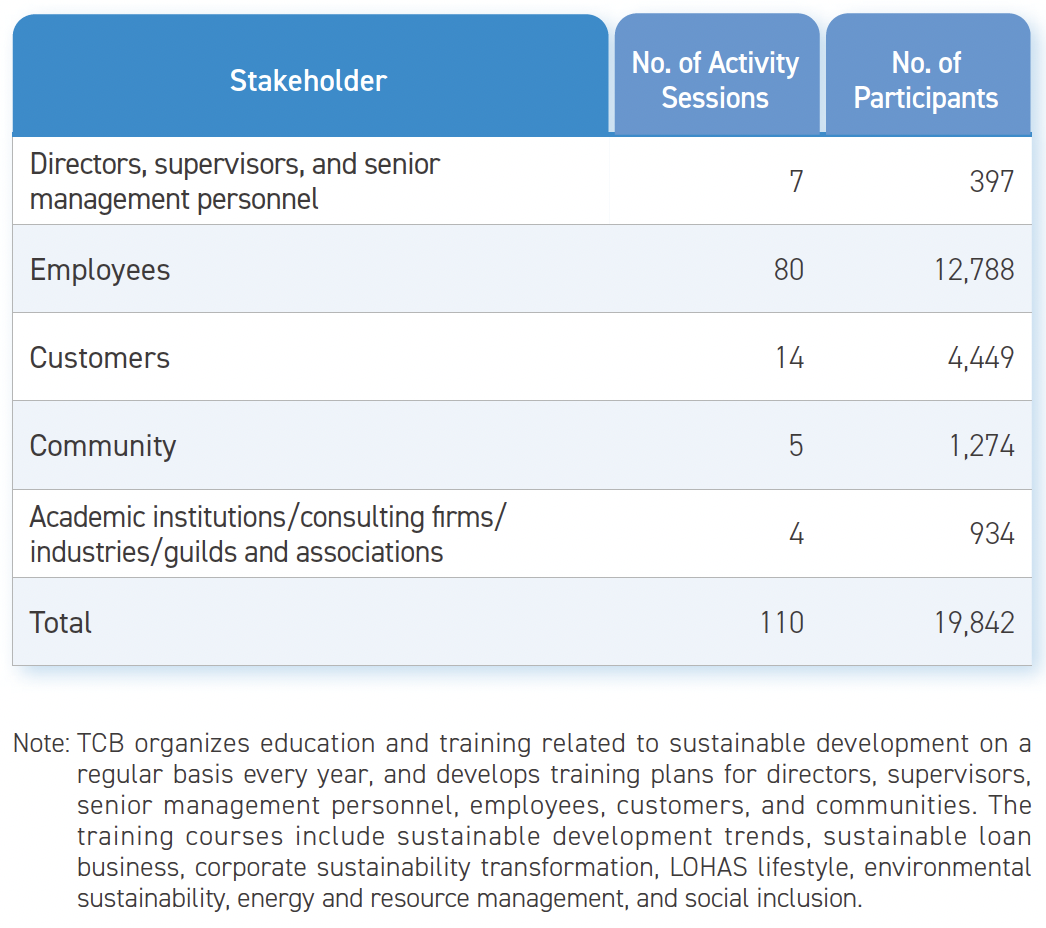
Based on the 5 major principles of the AA1000 Stakeholder Engagement Standard (AA1000 SES)—dependency, responsibility, influence, representative, and diversity—TCFHC has identified 8 major categories of stakeholders who are most influential and relevant to TCFHC’s operations, namely employees, shareholders/investors, customers, suppliers, community, governments and competent authorities, media, academia/consultancy/industries/guilds and associations.
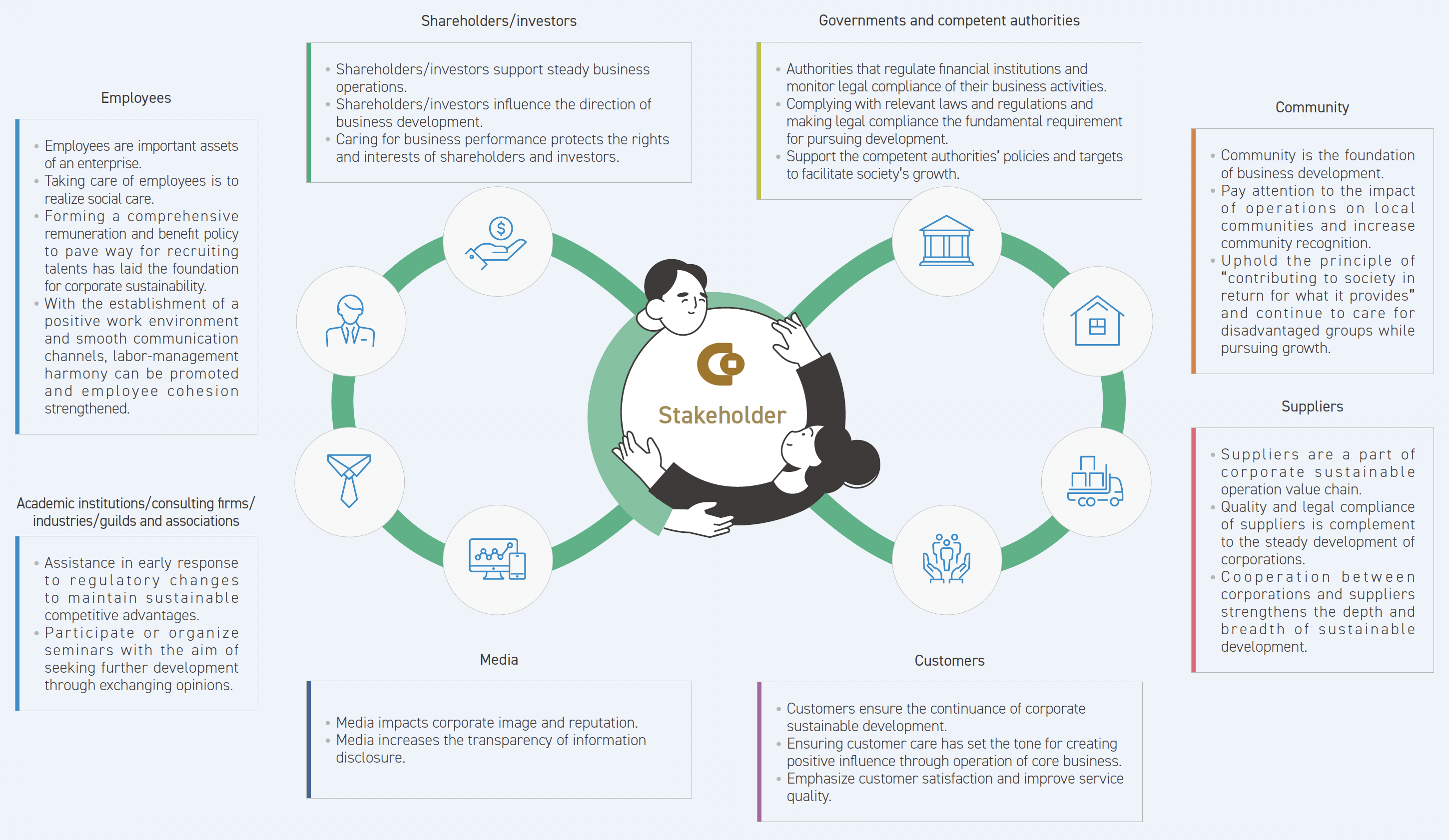
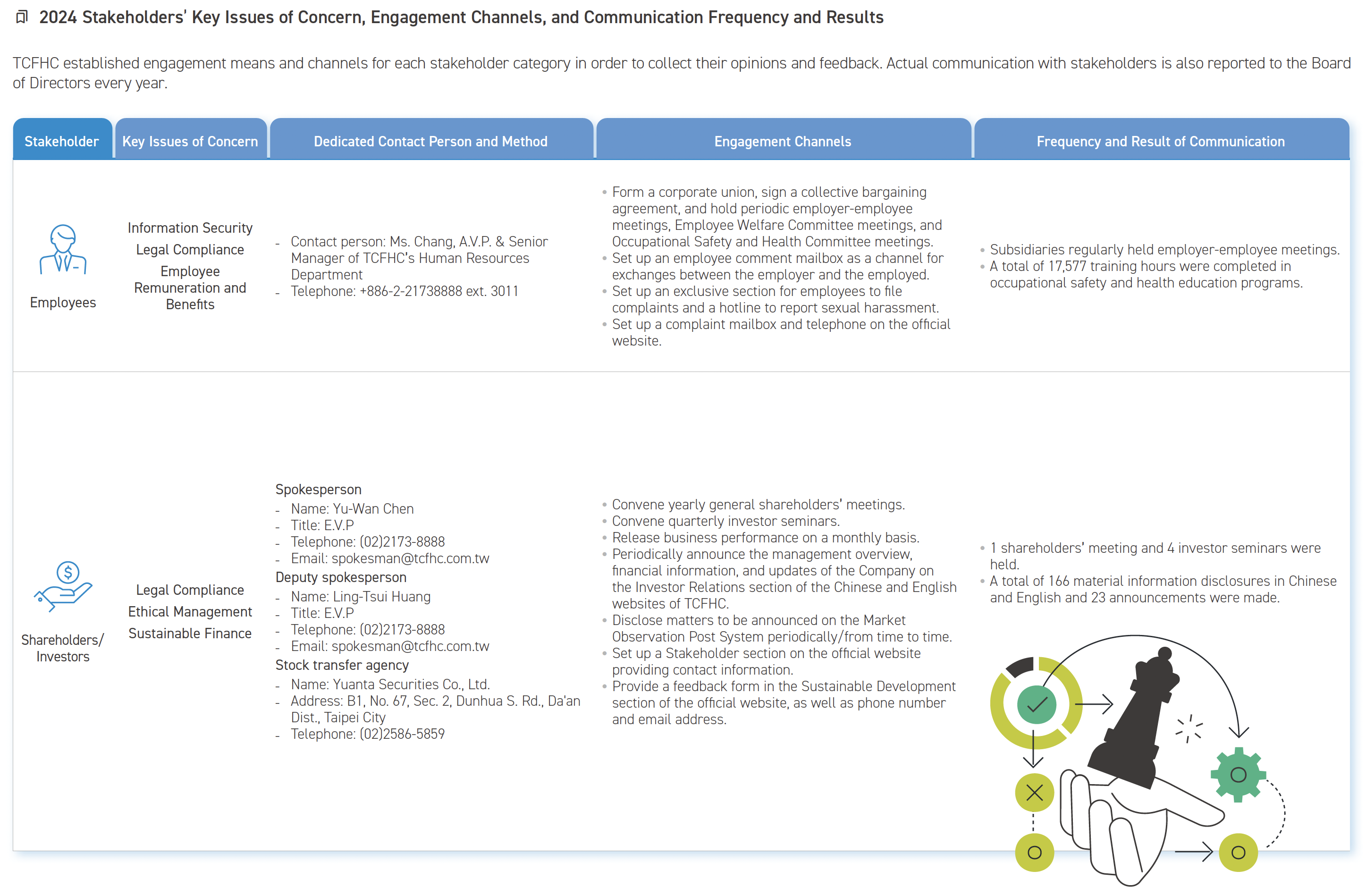
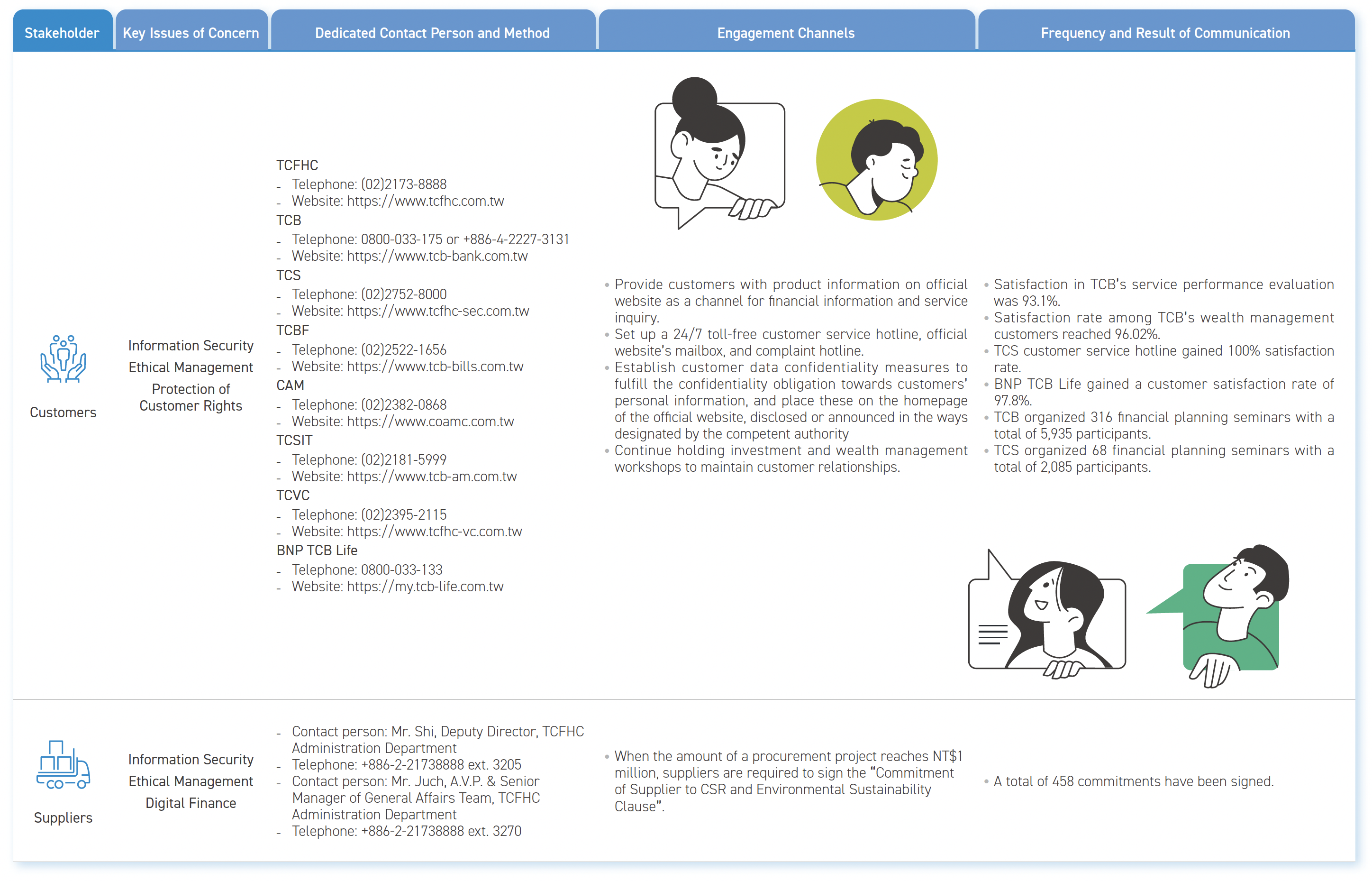
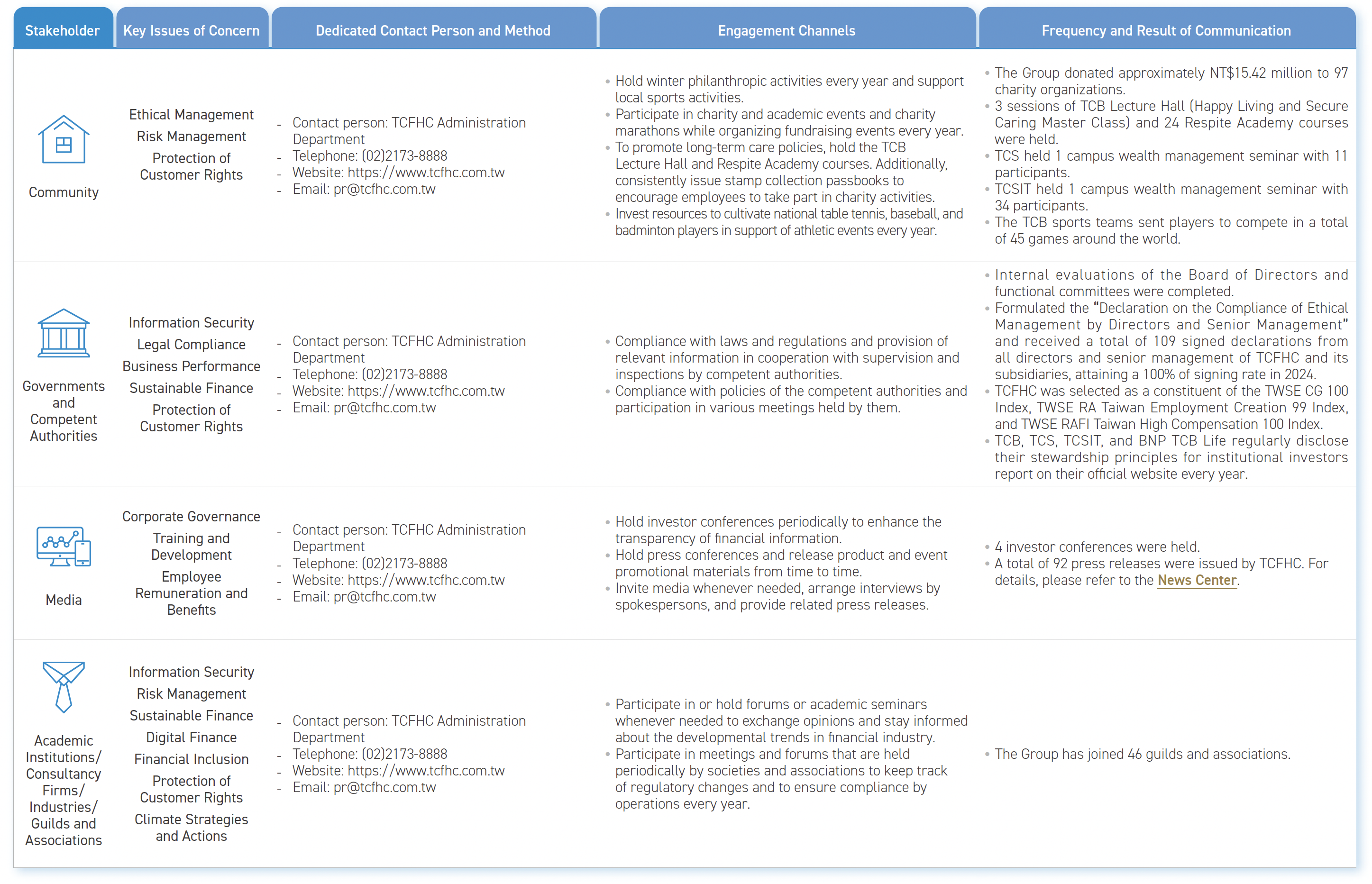
To effectively communicate with stakeholders and implement sustainability initiatives, TCFHC annually follows the GRI standards and the principle of double materiality—addressing both financial and non-financial aspects, to identify material topics. The topics. refer to financial development trends, as well as sustainability issues prioritized by well-known enterprises every year. At the same time, the Company evaluates its operating status based on the 4 principles of sustainability, materiality, completeness, and stakeholder inclusiveness. It also engages the members of the 6 major executive taskforces under the Sustainable Development Committee to discuss and compile suggestions from external stakeholders. The sustainability and financial impacts of various issues on the economy, environment, and population (including human rights) are evaluated to identify material topics and align them with the SDGs. In addition, the results of the material topic are included in the operational assessment items of each subsidiary and integrated into enterprise risk management (ERM), enabling a continued focus on development priorities and the enhancement of responses to stakeholder issues of concern.
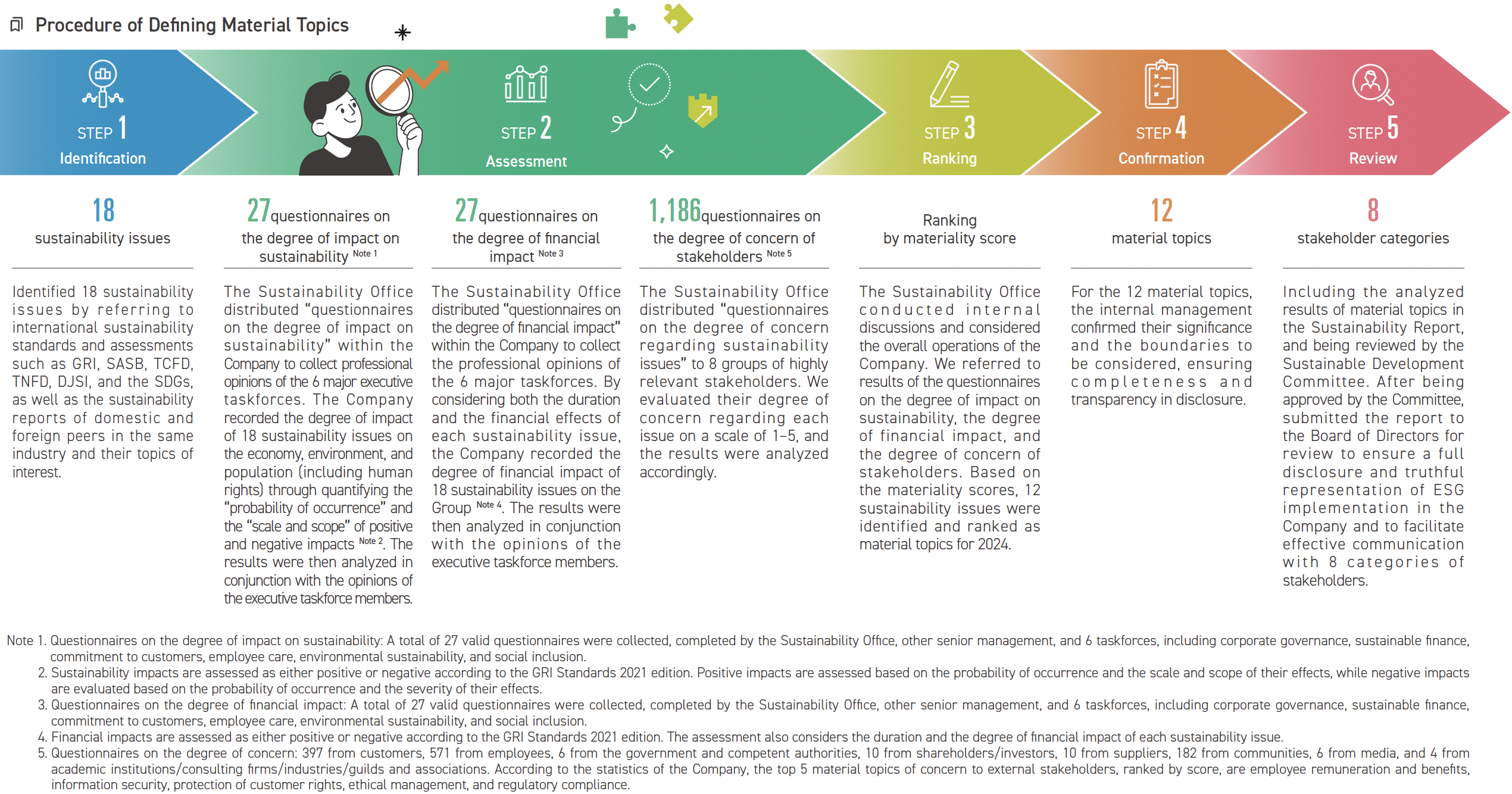
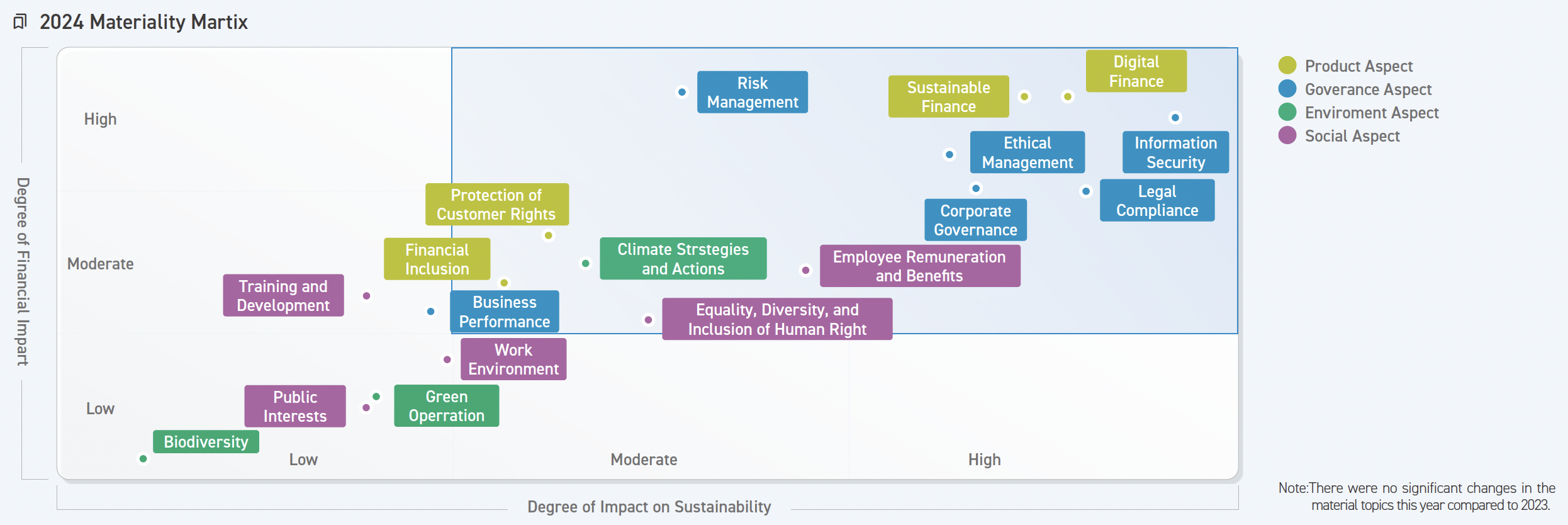
TCFHC has set up management approach for material topics to ensure that their impacts on the operation and stakeholders by are effectively managed through policy, implementation resources allocation, and performance management of performance.

